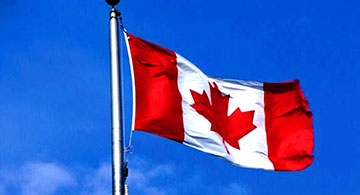 While I was enjoying my café Mocha at Tim Horton’s Westmount, a kababayan approached me and asked if she and her common-law partner are free to travel while their In-Canada spousal sponsorship application is in process.
While I was enjoying my café Mocha at Tim Horton’s Westmount, a kababayan approached me and asked if she and her common-law partner are free to travel while their In-Canada spousal sponsorship application is in process.
Let us examine Section 124 of the Immigration, Refugee and Protection Regulation (IRPR):
A foreign national is a member of the spouse or common-law partner in Canada class if they (a) are the spouse or common-law partner of a sponsor and cohabit with the sponsor in Canada.
Please pay attention to the last paragraph that states “cohabit with the sponsor in Canada”. In-Canada spousal sponsorship requires that not only must an applicant be a spouse or common-law partner, but they must cohabit with the sponsor.
What does cohabitation mean in the context of Canadian immigration?
Cohabitation means living together. Two people who are cohabiting have combined their affairs and set up their household together in one dwelling. To be considered common-law partners, they must have cohabited for at least one year (one year of cohabitation is not a requirement in case of spouses). This is the standard definition used across the federal government. It means continuous cohabitation for one year, not intermittent cohabitation adding up to one year.
The fact that the spouses are cohabiting together can be proven by providing evidence at the time the application is submitted. This can include proof of what they own jointly, for instance, bank or credit card statements, property, or other investments etc.
Persons who are not cohabiting with their sponsor at the time IRCC seeks to grant permanent residence for instance, persons who have been removed or who have left Canada voluntarily are not eligible under the Spouse or common-law partner class. They may, however, seek to apply in the family class (overseas), which would require them to submit a new application.
Although it can’t be avoided that one or the other partner may have left the home for work or business, family visit, etc. the separation must be temporary and brief.
The law has not defined what period of absence would constitute a break in continuous cohabitation, I strongly recommend for the couple to keep periods of absence to an absolute minimum. It is better to be safe than sorry.
So, my answer to the question above? Personally, I am against traveling frequently because if the foreign national is denied entry to Canada, the couple would then not be able to continue cohabitating in Canada and therefore would not meet the requirements of R124 (a).
Applicants who leave Canada before a final decision is made on their application for permanent residence as per the Manual:
There is no guarantee that foreign nationals who have left Canada after submitting an application under the Spouse or Common-law Partner in Canada class will be allowed to return to or re-enter Canada. If they are not allowed to enter, their application for permanent residence will be refused because they are not cohabiting with their spouse or common-law partner at the time the case is finalized [R72(1)(d) and R124(a)]. The only way to remain risk-free is to not travel while the application is in process.
If you have questions regarding the above article you may contact Marjorie at info@mcncanadaimmigration.com
Source: Immigration and Refugee Protection Regulation (IRPR)
A word of caution: You should not act or rely on the information provided in this column. It is not a legal advice. To ensure your interests are protected, retain or formally seek advice from a Regulated Canadian Immigration Consultant (RCIC) in good standing of ICCRC. The views expressed in this article do not necessarily reflect those of RCIC’s.


